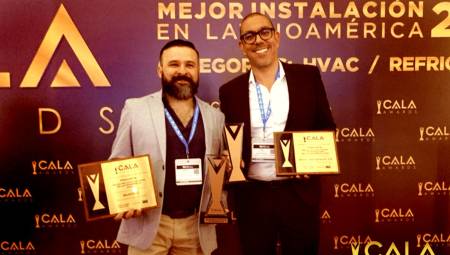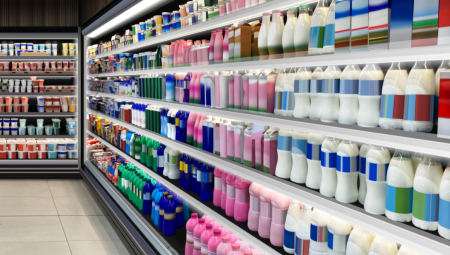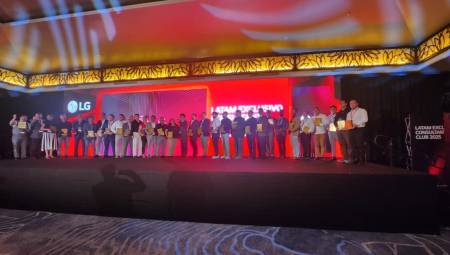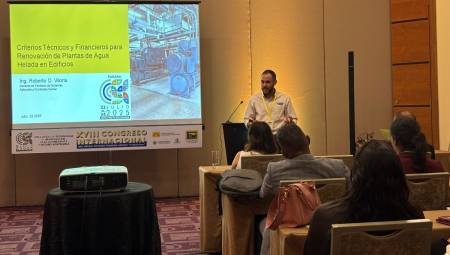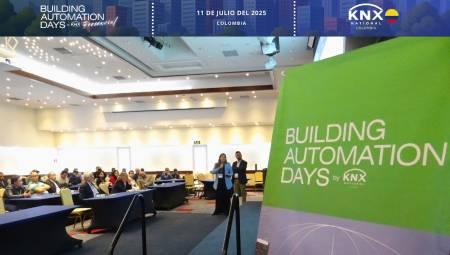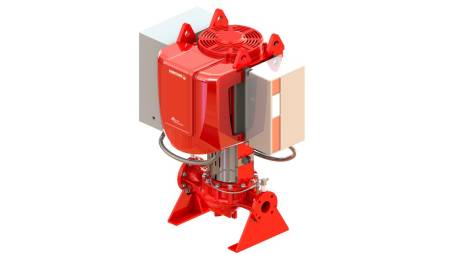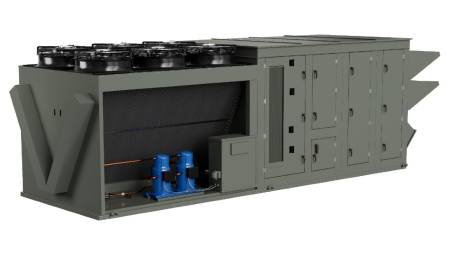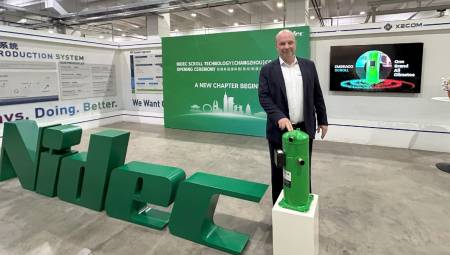By Julián Arcila
The current economic environment looks quite unfavorable for certain markets. First, the American did not behave at the end of 2007 as analysts expected, and began 2008 with the announcement of an unemployment rate of 5%, the highest since 2000. If you add to this a dollar increasingly weakened by interest rates, and that could weaken further if the Federal Reserve realizes the idea of lowering them even more to avoid recession; if this happens, capital could continue its flight to emerging and commodity-producing economies, something that could bring benefits for some Latin American nations, although not all.
In addition to oil and gold, platinum and copper also showed bullish behaviors, as did agricultural commodities; by the work and grace of oil, fuels in much of the world also rose, raising alarms among consumers. But what is generating such economic madness and volatility in commodities? Large emerging economies such as China and India are producing at historic levels, all to meet the demand for final products in the United States. The high demand of Asians is mobilizing commodities and in that sense their prices are increasing.
There is so much expectation for such materials that according to the invertia.com portal, hedge funds and other long-term investors have placed more than $100 billion in them since the last five years; often using only long-term passive indices. In short, what was once seen as a low-grade product, usually produced in a secondary economic sector, has now become a fundamental part of the global productive scheme; as long as there is demand, the situation will not change.
Now. How do companies in our industry see the situation? To know their opinion and predictions for 2008, AC/R LATINOAMÉRICA consulted several well-known figures in the segment.
A concern of all
As discussed at the beginning of the article, the situation would not change markedly for 2008. On the other hand, the economy would not present a very good performance either, since it follows the credit restriction resulting from the mortgage crisis of subprime debtors, but also inflation, which seems to be a trend around the world that has generated a lot of fear.
As far as HVAC/R is concerned, the concern remains on the copper side, as for manufacturing companies this was an element of concern during 2006 and 2007. Oil itself is not a major source of alarm, but the increase in crude oil prices in fuels has made freight prices more expensive. There is also a greater concern and it is in countries where electricity consumption is made from crude oil: There electric energy is quite expensive which could impact the markets, either reducing the consumption of solutions for air conditioning or increasing the demand for solutions with higher efficiency parameters, like the SEER 13.
However, for some professionals the situation of raw materials should have already stabilized, because if it does not do so for this year there could begin to be talk of a crisis. In this sense, José Mayaudón, director of international relations of Bronz-Glow, said: "I believe that this situation should have reached its peak; talking about greater increases would be the first stage to talk about recession, hopefully that does not happen. We hope that what is coming will be the normalization of this phenomenon, including oil. We don't expect it to go down ostensibly, but we do expect it to be set at least $80, which would help a lot."
Regarding oil, Caio Tadeo Brandao, export manager of Duro Dyne, also spoke, who placed some concern in the heating segment in countries with stations such as the United States, as this would impact the consumption of fuel to heat homes in winter, imposing high prices for the average American. In the same way, he was concerned about the issue of freight, because when solutions have to be sent to other countries, costs increase thanks to the rise in gasoline and what used to have a certain price today has seen increases of 40% thanks to this element.
For his part, Orlando Tercilla, vice president and director of Refricenter International, spoke about the general issue of raw materials and assured that this will be a factor that will continue to grow, which he attributed to the high consumption of India and China. "These two countries are currently the largest consumers. As is known, the US market has decreased construction. The increase in the price of oil will impact the market causing greater consumption of more efficient units, mainly in the Caribbean, where there is a lot of cash flow due to tourism; in these countries energy is expensive," he said.
Denis Schiavi, Nordyne's Latin America manager, is another professional who says that the rise in crude oil has an indirect impact on the industry. "Although we do not need oil or any of its derivatives to manufacture our equipment, the truth is that the impact will be seen in the value of energy consumption, which will raise the operating costs of the systems in the nations that depend on this product, not so in those that obtain energy from hydroelectric plants or nuclear plants, as is the case in Brazil," he noted. He added that this will be the first step for people to think about more efficient equipment, as this factor will be felt in the pockets to the extent that air conditioning systems are large energy consumers.
The latter professional also referred to the strong increases that have occurred in the copper and aluminum segments. Mayaudón agreed with the above, who said that what most complicates the situation is that usually both products are necessary in the construction of an air conditioning system.
These two compounds will be in the eye of the hurricane during 2008 because the controversy is open about whether aluminum will replace some of the applications that exist today for copper, because many actors are today ensuring that the first has a better performance than the second and that it even has a lower price; the latter has not been openly accepted by many manufacturers, which will further stoke the controversy during this year.
Latin America: Benefited by raw materials?
As international analysts put it, Latin America is living its quarter of an hour thanks to the fact that many countries produce raw materials that are quite desired in the productive environment such as copper, steel, tin, aluminum and others. On the one hand there are greater possibilities that the economy of these nations begins to enjoy an economic boom and that this in turn generates growth in the HVAC / R markets, but on the other hand it is that on many occasions when countries began to receive higher currencies for this factor, this reacted as a rebound, generating falls in these prices and therefore in their income. How do professionals see this panorama?
For Orlando Tercilla, Latin countries were the great beneficiaries of eastern voracity, but he considers that not in all countries this behavior led to a growth of the same market. "In Colombia, Chile and Brazil, growth was observed; Venezuela in my opinion did not benefit as much. In 2007 the market did not grow as much as it should have grown. To get an idea, 2006 was a better market and oil was higher in 2007," he explained. In several of these countries, he said, there was increased demand for high-efficiency equipment and it has imparted trends in the markets, such as the reduction in demand for three- and five-ton air conditioning compressors thanks to the reduction in the price of the finished product.
Now, in the opinion of José Mayaudón, for Latin America it would be better for prices to stabilize and for example oil to stand at U$80 per barrel, which is still a good price, but not as shocking as what is being seen at present; the reason for affirming the above is that in his opinion these phenomena of ups and downs can have a diametrically opposite effect in the medium term and cause the incomes of these nations to fall. This would be, in Joseph's view, more traumatic than if prices were lowered a bit and stabilized there.
On the other hand, it could also be thought that the increase in freight prices would open an opportunity for Latin countries to assume a role of technology producers taking advantage of the proximity to the United States, the main consumer of finished goods on the planet. However, this was distorted by several professionals because on the one hand Latin America might not have the capacity to supply the American domestic need and that even with the freight factor against, Chinese production costs remain more competitive. Proof of the latter is the case of the Chinese company Midea, manufacturer of air conditioners, which has increased its market share in Brazil, Argentina and Uruguay since 2004, exceeding the volume of sales year after year.
Direct consequences
The situation with raw materials is leading producers to think about what to do to replace products that can become more expensive, either the manufacture of equipment or parts, as well as what could modify demand such as the costs of electricity, that would promote the purchase of more efficient units with lower electricity consumption.
Denis Schiavi referred to this and assured that he has seen potential for the sale of SEER 13 units in several territories of the region. "Colombia and the Dominican Republic are markets in which there are enough opportunities; in the latter, the population lives affected by the high costs of energy, which comes from oil. The situation is aggravated by the high electricity consumption derived from air conditioning systems," he said.
But there is also another point of view regarding the components that are used to form air conditioning and refrigeration equipment; refrigerants are part of this group. It is no secret to anyone that this will be the issue to be analyzed in 2008 as the date on which the production of equipment based on this refrigerant will stop in THE United States is approaching. For Orlando Tercilla, this situation is going to have a big impact when it comes to demand for compounds. The fact that Europe has already opted for the elimination of the use of this substance, opting for ecological ones such as R-404 and R-410A, poses a global trend for the coming months that could spread to Latin America.
It can then be assured that 2008 will bring a strong movement to the industry, which will be distributed on several fronts. The urgency remains in the air to create new possibilities to soften a little the impact of oil and other materials, both in the pockets of manufacturers and end users. A good alternative would be to bring to all Latin countries the economic incentive for those who acquire air conditioning equipment or refrigerators with low electricity consumption.


